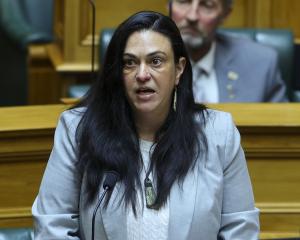The New Zealand electoral system, for all of its faults (as seen recently with the arrival and departure of former National Party list MP Aaron Gilmore) has its strengths.
Proportional representation is now part of the country's political landscape, and while argument still rages in parts of the community, list MPs are here to stay.
Political parties are often accused of putting the party before the wishes of the electorate by selecting people on its list that have been ''faithful'' party servants. It can be galling when, in some cases, an electorate MP, resoundingly rejected by an electorate, returns to Parliament through a high ranking.
On the other side of the equation, ethnic representation in Parliament - from Asia and the Pacific Islands in particular - has been strengthened by MMP. So too has the representation of women in Parliament.
That aside, the decision by Justice Minister Judith Collins to reject recommendations to amend the MMP electoral system is a cynical move, even when viewed in the most generous of lights. The review of MMP was set up by Ms Collins' predecessor Simon Power and conducted by chief electoral officer Robert Peden, and included extensive public consultation.
The review recommended several changes, including abolishing the ''coat-tailing'' provision that exempts a party from having to meet the 5% party vote threshold if the party gets at least one electorate MP. The review also recommended lowering the party vote threshold from 5% to 4%. The group that campaigned to keep MMP at the 2011 referendum is urging Ms Collins to reconsider her stance, but - to borrow a phrase - this lady is not for turning.
The minister released spread sheets which she says makes changes to MMP impossible because of the lack of agreement among political parties. Opposition parties have said the Government is deliberately ignoring the recommendations of the Electoral Commission, but this is simply not true, she says.
All parties have their own agendas and have selected which recommendations they will support and which they will not. This is an interesting statement because there is one major party which will benefit from the proposed changes not being introduced by the next election - National. National finds itself without a natural coalition partner of substance.
It has Act New Zealand, but only through a single MP, John Banks, himself a former National cabinet minister. United Future leader Peter Dunne supports National now, but in the past was a revenue minister in a Labour-led government.
The Maori Party, which supports the Government on confidence and supply, has three MPs - but that may change in 2014, leaving National without those three important votes.
If Messrs Banks and Dunne hold their seats in 2014, and increase their party vote, there is a chance under current rules that they may bring in other MPs who will definitely - in the case of Mr Banks - and possibly - in the case of Mr Dunne - support National. Problem solved.
Reducing the threshold to 4% is a risk National cannot take. Even with Conservative Party leader Colin Craig prepared to spend more than $1 million of his own money funding his campaign, it is unknown if that party can reach even the 4% threshold. National is not a party of deal makers and risk takers and it seems unlikely to start that kind of behaviour now.
Self-interest is at the heart of the move by Ms Collins, make no mistake. National, and Prime Minister John Key, are desperate for a third term and not changing the rules gives the best chance of that happening.
There are no parties that look capable of reaching a 4% threshold if they do not already reach the 5% threshold. New Zealand First and the Greens are in Parliament because they both reached the threshold without an electorate MP.
Given the overtures Mr Key has made to NZ First leader Winston Peters, he may be hoping - even expecting - his support given the lure of the baubles of office, something that has happened before.
The cynical move by the Government not so much breaks a pledge by Mr Key that the system would be reviewed if a majority of voters opted to keep it. What it does is reinforce yet again that self-interested politics is here to stay. And that is a disgrace.











